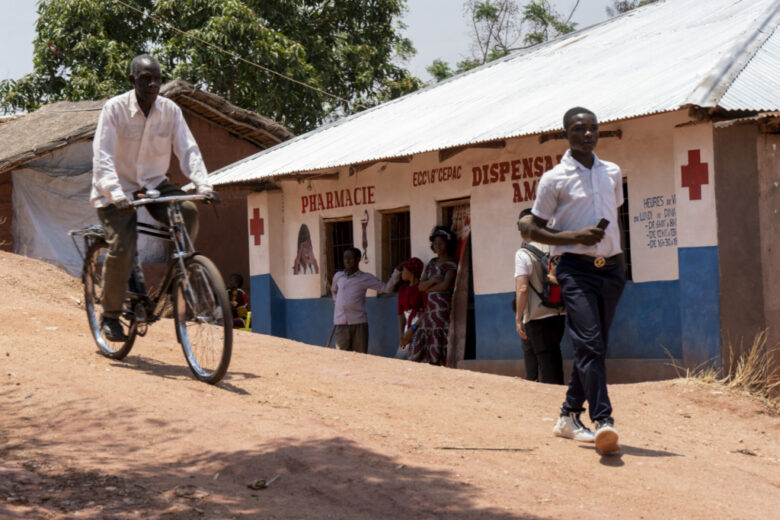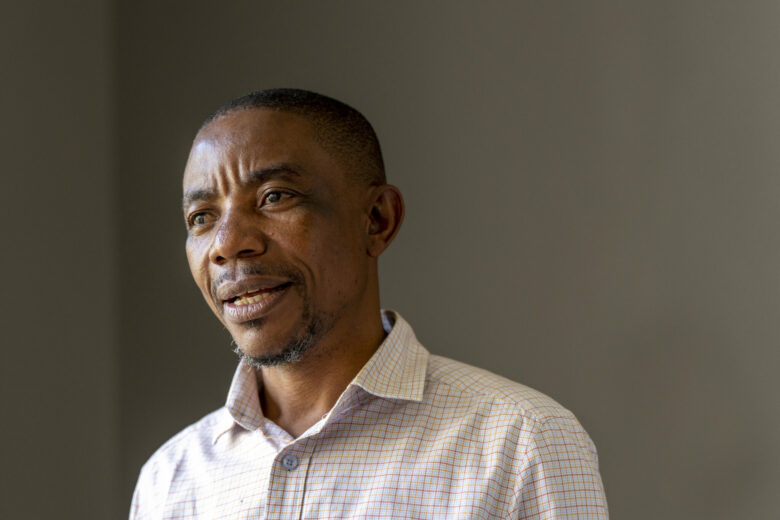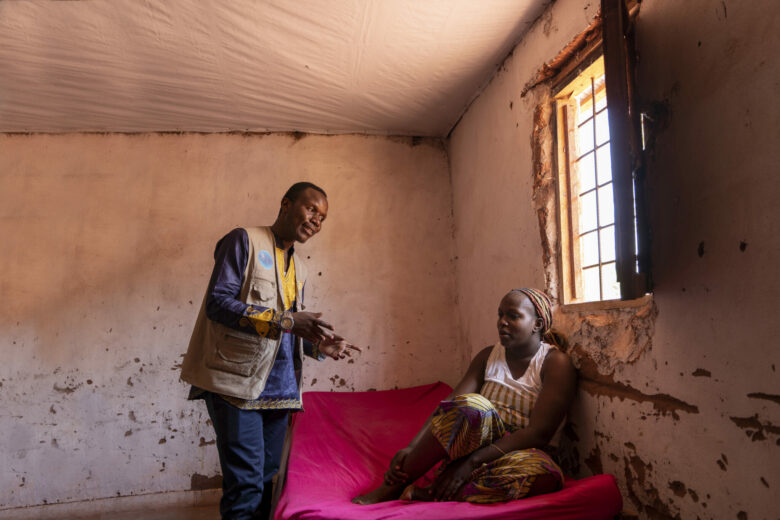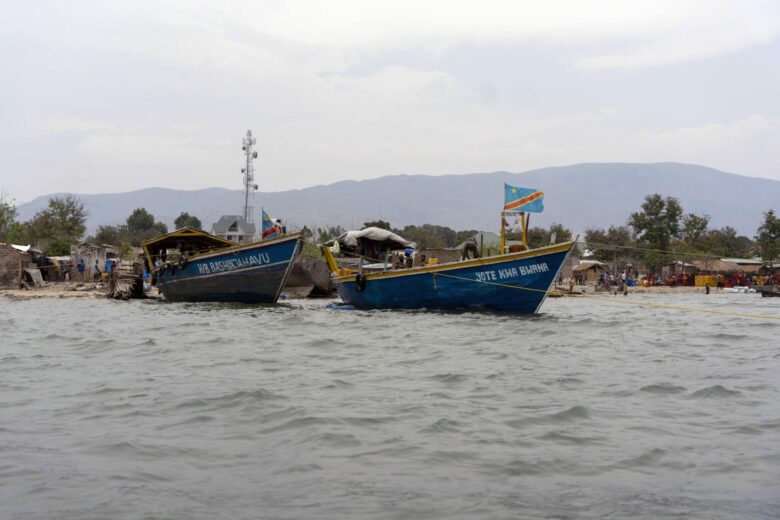Fida began cooperation with the health department headed by Nobel Peace Prize winner Dr. Denis Mukwege in DRC

Sexual violence, teenage pregnancies and mother-child mortality are real challenges in Congolese villages. The goal of Fida and Nobel Peace Prize winner Dr. Dennis Mukwege, is effective preventative health care for all.
The Democratic Republic of the Congo is located in the heart of Africa, at the equator. It is large both in area and in population. To help us conceptualize the enormous size of the country, it corresponds to about two-thirds the size of Western Europe. Congo is rich in natural resources, but these riches have not enriched the Congolese people. Congo is one of the poorest countries in the world.
Specific challenges in Congo are food insecurity due to ongoing conflicts and the fragility of health systems. These factors affect each other and slow down the social and economic development of the country. Violent conflicts and the fragility of the government also prevent the country’s abundant natural resources from being utilized to improve the standard of living of its own people.
I believe that in the long term, by working together, we can promote wholistic well-being.
Fida has been operating in Congo for years, partnering with the local Pentecostal church CEPAC. The church partner acts as a strong social influencer in almost the entire Congo through parishes, schools, universities and clinics. The purpose of the cooperation is to promote safe living conditions and to support children’s right to equal and high-quality education.
Last year, Fida also started cooperation with the health department of CEPAC. The department is headed by doctor and Nobel Peace Prize winner Dr. Denis Mukwege. He has been involved in the planning of the programme, which began at the beginning of 2022.
New cooperation promotes people’s overall well-being
In Fida’s work in the Congo, health security is a new theme. Work related to people’s comprehensive well-being is one of the key parts of Fida’s entire development cooperation programme for 2022-2025. The strengthening of health services is an important part of sustainable economic development. Its importance is also highlighted in Finland’s development policy.

In Congo, Fida’s health project is coordinated by Joseph Furaha. He is also responsible for coordinating the nationwide health department of CEPAC. Furaha is excited about the new collaboration.
– We promote health and at the same time reduce the global inequalities that are still present between poor and developed countries, Furaha says.
Furaha attaches particular importance to the preventive health work. Responding to health challenges is always more challenging and costly than preventive action.
– We need help and support for this. We have more than 300 functioning health centres and we want to improve both the professionalism of the nursing staff and the health knowledge of the people in the villages near the health centres.
Furaha is not only talking about disease prevention, but about broadly influencing the root causes of problems. This includes both the dismantling of stigmas and the sensitization of communities to health-related issues.
– I believe that by working together we can promote comprehensive well-being in the long-term. It is important that the people in the area have the know-how to prevent diseases, and the courage to intervene in everyday practices that discriminate against minority groups, women and persons with disabilities.
Influencing religious leaders is important
The shoreline of Lake Tankanika is lush and beautiful, the climate is very pleasant. However, everyday life is overshadowed by attacks by various ethnic and rebel groups, which are driving people to flee their homes. There is a great need for psychosocial support. Everyday challenges are also increased by various diseases, which could at least be partially prevented through better hygiene and awareness.

Bivumbo Desire, a doctor who works in the project, says that the region has a disappointingly high mother-child mortality rate. Malaria and cholera make people seriously ill and vaccination coverage is poor.
In addition to the nurses working at health centres, there are trained volunteer nurses working in the area who spread information to the communities. They lead small groups and hold various information sessions related to health and well-being. These “mobile caregivers” have played a key role in vaccination campaigns. They have both the knowledge, the time and know the communities well enough to have discussions on topics that concern the villagers.
We must strive for sustainable change – towards a non-violent future.
Sexual violence is common in the region. For this reason, the cooperation between Fida and CEPAC focuses not only on identifying and referring survivors to treatment, but also on strong advocacy work.
– It is extremely important that those recovering from the experience of violence are offered psychosocial support in addition to physical care, but we must strive towards sustainable change – toward a non-violent future, Desire says.
A lot of work to share information and change attitudes is needed. Fida is ready to tackle this challenge in the Congo. Fida and CEPAC do strong advocacy work towards religious leaders and other opinion leaders. Through cooperation, the aim is to support sustainable change emerging from within communities.
Teenage pregnancies are of particular concern
The years of cooperation between Fida and CEPAC have brought about significant change. For example, access to school for children with disabilities has improved considerably. This has been influenced by discussions with teachers and parents as well as with children. At the same time, understanding and practical skills have increased. Katja Köykkä, special adviser for the Congo country programme, sees the new cooperation in the field of health care as a great opportunity for even broader advocacy work.
The increase in teenage pregnancies is influenced by the culture of the region, where the marriage of underage girls is common and even recommended.
– The cooperation opens up new opportunities, for example, in terms of promoting the health of schoolchildren and students. We can make use of good, existing networks with schools. For example, we can organise various group activities where young people have room to discuss and receive support related to their own growth and development, Köykkä says.

Fida also operates in the Kalemie region, on the west coast of Lake Tanganika. There has been great concern in the region about the ever-increasing number of teenage pregnancies. According to Congolese experts, the increase is due, first of all, to the poor socio-economic situation of families, especially to the poor opportunities for girls to attend school. The increase in teenage pregnancies is also influenced by the culture of the region, where the marriage of underage girls is common and even recommended. The corona pandemic and the ongoing conflicts plaguing the region have increased these challenges. People are forced to flee their own homes, which further reduces the chances of making a living.
– It is important to discuss issues, which violate the rights of children and young people, with parents and teachers as well as with opinion leaders in the community. But it is equally important to give young people the right information and support, Köykkä says.
Katja Köykkä also comments that when she last met Dr. Mukwege, he especially hoped that the cooperation with Fida would also strengthen advocacy work within Congolese churches.
